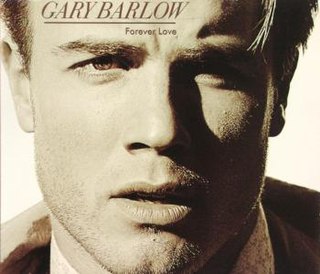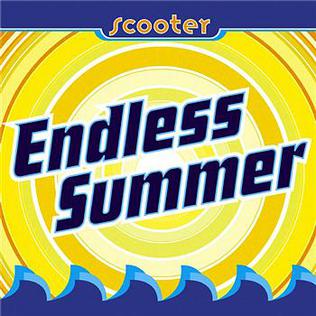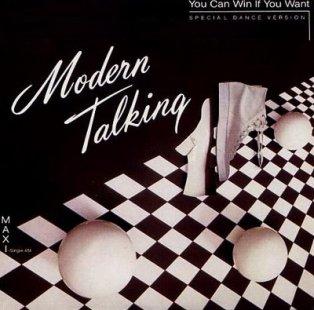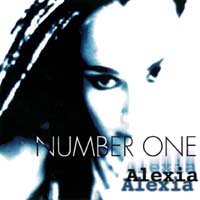
Grandes Éxitos is the first greatest hits album by Colombian singer and songwriter Shakira. It was released on 2 November 2002, by Sony Music Colombia, one year after her fifth studio album and English-language debut Laundry Service. It is composed of Spanish-language recordings from her third, fourth and fifth studio efforts Pies Descalzos (1995), Dónde Están los Ladrones? (1998) and Laundry Service (2001), along with the live album MTV Unplugged (2000). The album only featured Spanish-language tracks and featured no new recordings. It also did not include songs from her first two studio albums, Magia and Peligro.

"Hyper Hyper" is a song by German band Scooter, released in May 1994 as the first single from their debut album, ... and the Beat Goes On! (1995). It was sold in three versions: two of the versions had the same track listings, but different covers. The song was one of the most successful dance hits of 1994. The original "Hyper Hyper" quotes were taken from Ultra-Sonic's 1993 track "Annihilating Rhythm ", licensed to Low Spirit Records/Polydor. Ultra-Sonic receive a "big shout" in the lyrics of the song, as do a further thirty DJs who were popular in Germany in the mid-1990s.

Aaron Carter is the debut studio album by American pop singer Aaron Carter, brother of Backstreet Boys member Nick Carter. It was originally released in December 1997 in Europe and re-released the next year with a new song and a remix, as well as being released in the United States in the summer of 1998.

The 1st Album is the debut studio album by German duo Modern Talking, released on 1 April 1985 by Hansa Records. The album reached number one in Germany on 27 May 1985, spending four weeks atop the chart and 18 weeks within the top 10. It was eventually certified platinum by the Bundesverband Musikindustrie (BVMI), denoting shipments in excess of 500,000 copies in Germany.

"Forever Love" is the debut solo single released by British singer-songwriter Gary Barlow, taken from his debut solo album, Open Road (1997). Released on 8 July 1996, it debuted at number one on the UK Singles Chart six days later, becoming Barlow's first of three number-one singles away from Take That. Worldwide, "Forever Love" also topped the charts in Lithuania, Spain and Taiwan, while reaching the top five in Belgium, Denmark, Germany, Ireland and Switzerland. The song was used as the official theme for the film The Leading Man (1996).

"The Hostage" is a song by American singer Donna Summer from her debut studio album, Lady of the Night (1974), which was released exclusively in the Netherlands. The track was written by Giorgio Moroder and Pete Bellotte, with the latter also serving as producer. It was issued as a 7-inch single in Europe and Asia in 1974, later being included in the German and French versions of Summer's 1975 album Love to Love You Baby. In the lyrics, Summer plays a wife whose husband is kidnapped. By 1978, The Hostage has sold 500,000 copies.

"Love Won't Wait" is a song by English singer Gary Barlow from his debut studio album, Open Road (1997). It was released as the second single from the album on 9 April 1997 by BMG and RCA Records. The song was written by Madonna and Shep Pettibone, and was an unreleased demo from her Bedtime Stories (1994) studio sessions. Barlow came by the demo in 1997, while looking to record more songs for Open Road. He changed the lyrics to represent a male point of view rather than Madonna's, and recorded the track with Stephen Lipson as producer.

"Till I Loved You" is a song from the never-staged musical Goya: A Life in Song, based on the life of the Spanish artist Francisco Goya. It was written by American composer Maury Yeston.

"Endless Summer" is a song by German group Scooter, released in July 1995 as the fourth and final single from their debut album, ... and the Beat Goes On! (1995). Its accompanying music video was directed by Eric Will.

"You Can Win If You Want" is a song by German pop duo Modern Talking, released as the second and final single from their debut studio album, The 1st Album (1985). The single was released on 13 March 1985 and entered the top 10 in Germany on 13 May 1985. After spending three weeks within the top five, the single reached the top spot, eventually going gold for sales in excess of 250,000 units in Germany alone. The single peaked at number eight in France, where it also reached a gold status for sales of 500,000 units.

"Atlantis Is Calling " is a song by German pop duo Modern Talking, released as the second single from their third studio album, Ready for Romance (1986). It is the duo's fifth and final consecutive single to reach No. 1 on the German Singles Chart. "Atlantis is Calling " was released in Germany and in other European territories on 28 April 1986, it peaked at No. 1 in Germany on 16 June 1986 after spending two weeks at No. 2 position. The single spent four weeks at the top and total of 14 weeks on the top 100. While "Atlantis Is Calling " entered the top five in Switzerland, Austria and Sweden, it managed to chart within the top 10 in the Netherlands and Norway.

"Number One" is a song by Italian singer Alexia, released as the third single from her debut album, Fan Club (1997). Co-written by Alexia, it was her third successive top 5 hit on the Italian singles chart. In both Finland and Spain, it peaked within the top 5. A set of Spanish versions were released, although these were not specifically for the Spanish market.
"Entrégate" is a pop song written, produced and arranged by Juan Carlos Calderón, and performed by Mexican singer Luis Miguel. It was released as the second single from his Grammy Award nominated studio album 20 Años (1990), and became his fifth number-one single in the Billboard Top Latin Songs chart. The parent album became commercially successful, with sales records throughout Latin America, with six of its singles entered the charts in Mexico simultaneously. After its release, Miguel was recognized as the leading male vocalist in Latin America.

Luis Romano Peris Belmonte, known by his stage name Gary Low, is an Italian singer. He recorded several musical works in both English and Spanish. His recording of "I Want You" is prominently sampled on Washed Out's "Feel It All Around", used as the opening theme song of the television series Portlandia.

Grandes Exitos del Cine de los Años 60 is a studio album recorded for the U. S. market by entertainer Connie Francis.

The Concert is a live album by Barbra Streisand, released in September 1994 through Columbia Records. The album reached a peak position of number ten on the Billboard 200. The Concert was certified platinum in Australia, Canada and the United States. The song "Ordinary Miracles" was released as a CD-single by Columbia Records including a studio version of the track produced by Walter Afanasieff. It was arranged and conducted by Marvin Hamlisch. An abbreviated version of the album titled The Concert: Highlights was also released with a different cover art and was certified gold by the RIAA, while the double album received a triple-platinum certification.
"I Want You" is a song by Italian singer-songwriter Gary Low from his debut studio album, Go On (1983). It was a hit in Spain, reaching No. 4 on the Spanish chart. In Germany, the song made the top 40, peaking at No. 37. In the UK, the song reached No. 52. "I Want You" is one of Low's most popular songs, alongside his 1982 debut hit "You Are a Danger" and 1984's "La Colegiala".

"My Love" is a song performed by Spanish singer/songwriter Julio Iglesias, written by and featuring American musician Stevie Wonder. It was released as a single in 1988 from Iglesias' album, Non Stop. The duet was a top 5 hit in the UK and Ireland, reaching numbers 5 and 2, respectively. In the U.S., it reached No. 80 on the Billboard Hot 100, and No. 14 on the Adult Contemporary chart.

"Can't Stop Raving" is a song by German electronic group Dune, released in 1995 by the labels Urban, Impulse and Max Music as the third and last single from the group's debut album, Dune (1995). The female vocals are performed by Tina Lagao and Janine Kelly-Fiddes. The song achieved moderate success in Europe, entering the top 10 in Germany (7), the Netherlands (9) and Spain (4). Additionally, it was a top 20 hit in Switzerland (16). Its accompanying music video was directed by Delano Sookha. The album version of "Can't Stop Raving" was used as theme music on Joel Veitch's Tales of the Blode.
"Maria Ninguém" is a song written by Carlos Lyra and first released by Brazilian bossa nova singer João Gilberto on his album Chega de Saudade in April 1959. It has been covered by numerous artists, most notably by Cliff Richard, who sang a Spanish-language version titled "Maria No Mas".

















